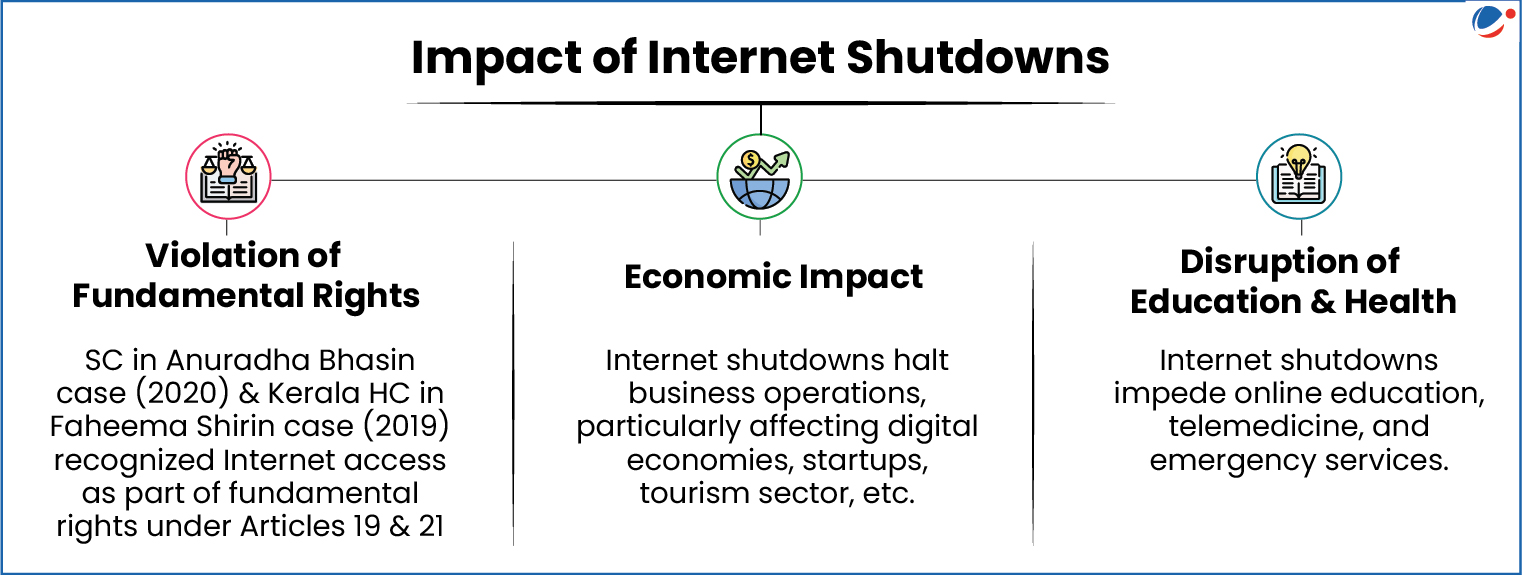According to data from the Software Freedom Law Centre, India recorded 60 internet shutdowns in 2024, the lowest in 8 years.
- The United Nations declared internet access a fundamental human right in 2016.
- Internet access is crucial for achieving SDGs, including education (SDG 4), gender equality (SDG 5), & reduced inequalities (SDG 10).
Legal Backing for Internet Shutdowns in India
- Constitutional Provisions: Article 19 (2) allows the government to impose reasonable restrictions on freedom of speech and expression for security of the state, public order, etc.
- Internet shutdowns have historically been used as measures to control misinformation, protests, or unrest etc.
- Statutory Provisions:
- Telegraph Act, 1885: Under the Temporary Suspension of Telecom Services (Public Emergency or Public Safety) Rules, 2017 of the Act, telecom services, including Internet, can be suspended in cases of public emergency or public safety.
- Section 144 of the erstwhile CrPC (section 163 of the Bharatiya Nagarik Suraksha Sanhita).
- Anuradha Bhasin case (2020) Judgement: The Supreme Court (SC) ruled that internet restrictions must be temporary, lawful, necessary, and proportionate.









